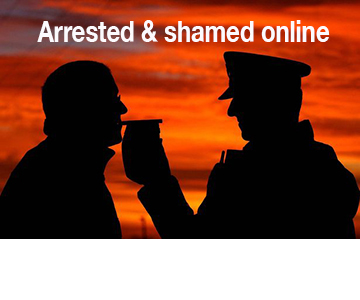Public shaming has been a part of the criminal justice system for as long as that system has existed. In Colonial America, punishments could include time in the stocks or pillories in the public square. It was humiliating, as passers-by were free to heap scorn and throw rotten food and garbage, but that humiliation was at least confined to the people of the village.
More recently, public shaming has come in the form of weekly police logs. Those long lists of local people and their alleged crimes are always popular reads, but in the age of paper-only newspapers, each installment came and went from the public consciousness in a matter of days.
Now, however, whether the logs are published by newspapers or, increasingly, the police departments themselves, they live forever online, available at the click of a button to a prospective employer, landlord or date, not to mention the legions of social media users who relish spreading other people’s bad news.
That raises questions about how well the punishment actually fits the crime, and whether at a time when the Internet has lengthened everyone’s memory, society needs a different perspective on how we judge each other’s mistakes.
This issue was raised this week as the South Portland Police Department began posting on its Facebook page the arrest photos of people charged with drunken driving. The photos will be left up for a few days, then taken down, the department said.
That’s not the case for the social media sites of other departments, including Westbrook and Scarborough, which post weekly crime reports containing all arrests along with mug shots, and appears to keep them online indefinitely.
The arrest reports are, of course, public records. Often, the more high-profile crimes are subsequently reported in the media.
But at least with news reports, the story is followed through until conviction, so a complete record is available online.
Police reports, though, come without context and before adjudication, and there is no followup. If the charges are later dropped or reduced, or the person is found not guilty, that information will not be found easily, but the initial arrest report and mug shot will. And online, it will be subject to the worst impulses of people too quick pile on.
The public shaming may make someone less likely to drive drunk, but so do hefty fines, lawyer fees, loss of license and threat of jail. Those latter punishments, which are applied only after conviction, have worked well to cut instances of drunken driving in Maine.
It is unlikely, however, that public shaming has much of an impact on habitual drunken drivers, who are the most dangerous and cause the most harm.
There is also an issue of fairness. Police officers typically have discretion when charging a person with OUI. Some people are arrested, taken into custody and photographed. Others — often those known to the officer or who are active in the community — are summonsed and allowed to go home.
Photos are particularly damning in the public arena, far more so than just a typed line in a report, so it hardly feels right that for the same crime one person’s punishment, handed out even before trial, includes having their picture sent in shareable form to thousands of neighbors, while for others it does not.
Still, these are public records, and they could find their way online whether through police, the media or an intrepid community member with a website.
Perhaps, then, we need to look at them for what they are: a snapshot of a person at their worst, but just one small piece of who they are.
Copy the Story LinkSend questions/comments to the editors.



Success. Please wait for the page to reload. If the page does not reload within 5 seconds, please refresh the page.
Enter your email and password to access comments.
Hi, to comment on stories you must . This profile is in addition to your subscription and website login.
Already have a commenting profile? .
Invalid username/password.
Please check your email to confirm and complete your registration.
Only subscribers are eligible to post comments. Please subscribe or login first for digital access. Here’s why.
Use the form below to reset your password. When you've submitted your account email, we will send an email with a reset code.